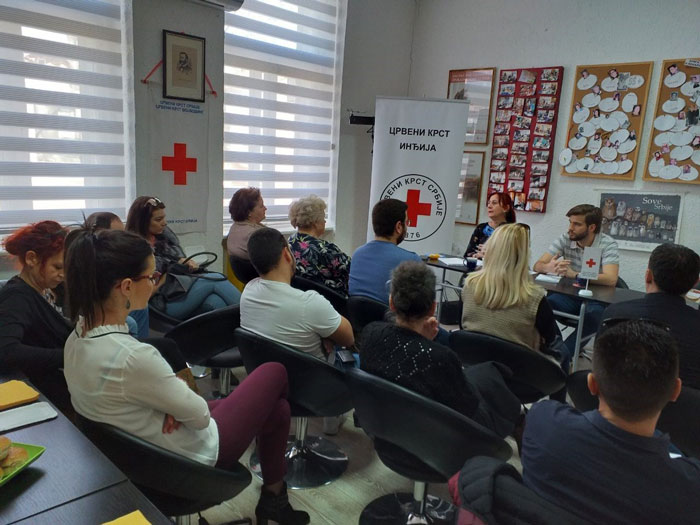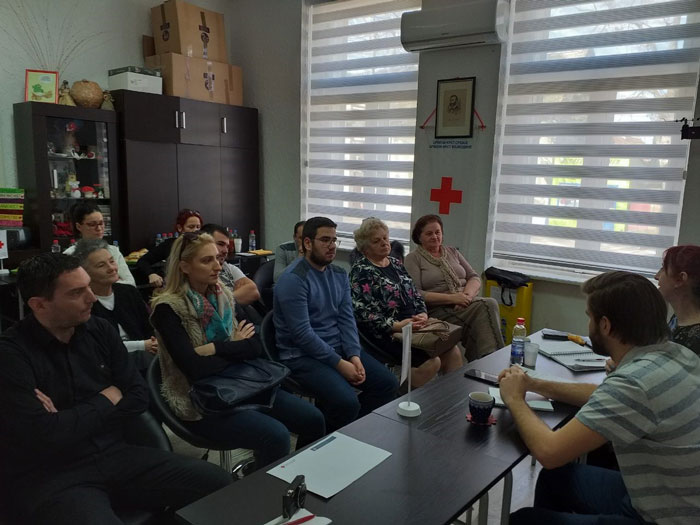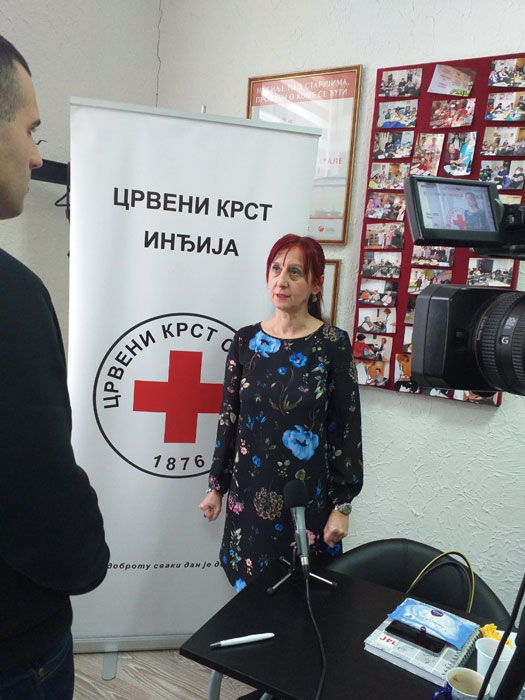Focus group organised in Indjija

In order to facilitate better understanding of intergenerational cooperation and exchange the Red Cross of Serbia conducted a research entitled “Intergenerational exchange.” This research was implemented with support of the Office of the Minister without portfolio responsible for demographics and social policy, prof. Dr. Slavica Djukic Dejanovic. In addition to quantitative segment of the research with 753 participants, the project also included some focus group interviews to collect qualitative data. On Thursday 21 February 2019 at the Red Cross of Indjija premises, a focus group interview was organised with participation of representatives of different generations.
It was agreed that intergenerational solidarity exists but that it is necessary to promote it much more at all levels and in all areas, which is lacking today. It is also necessary to work with children through primary schools so they can understand solidarity not only between generations but within their own generation – which would lead to diminished discrimination and violence. Work through schools and inclusion of older people would also help children be aware that there are different phases in life and help them better understand their own ageing during the life course. One of the conclusions of the focus group interview was that that parents and families need support in order to ensure solidarity is a default value in the society. Everyone should have friends of different generations – younger and older – because this will make their life richer.


The focus group interview participants in Indjija pointed out a good practice example from their community: the “Corner for a good moment” of the Red Cross of Indjija joint activity for older women and primary school children every Thursday afternoon. Older women who participate in the Corner’s activities have been invited to speak at classes about household management and taught the children how to cook and weave. The relationships created through these joint activities are still strong.
Intergenerational solidarity does not take place only within family framework, it takes place at work, in public transportation, in public institutions, at cultural events, but also between neighbours in the street or building where you live, in your favourite cafe as well, so it is important that all generations are sensitised and understand each other as well as the importance of developing intergenerational solidarity.
The participants also underlined that it is necessary to promote intergenerational solidarity in the workplace because this facilitates transfer of knowledge from one generation to the other, which is very important in the contemporary society with it unprecedented growth of the body of knowledge.
In any case, developing intergenerational solidarity is duty of all: individuals, families, society, state – and everyone bears a share of responsibility in the process.
